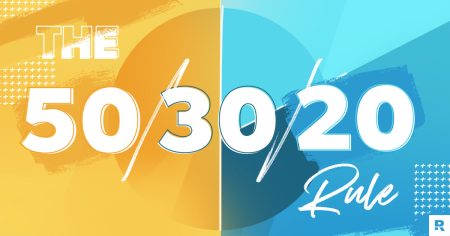Credit Sesame’s personal finance news roundup December 21, 2024. Stories, news, politics and events impacting personal finance during the past week.
U.S. household wealth rises in Q3 2024
The total net worth of American households posted its fourth consecutive quarterly increase in the third quarter of 2024. Household wealth grew by $4.77 trillion in the quarter, to reach $168.8 trillion. U.S. household wealth has increased by $17.27 trillion over the past year and nearly $26 trillion over the past two years. Gains in stock prices, fueled by falling interest rates and continued economic growth, were the primary reason for the rise in net worth. Both assets and debt rose for households, with asset growth rising more quickly to create a net increase in wealth. See data release at FederalReserve.gov.
CFPB spotlights the high cost of borrowing to gamble
The Consumer Financial Protection Bureau (CFPB) warned that people who use credit cards to gamble may be adding excessive costs to the risk of loss. A CFPB study found that cash advance transactions on credit cards tend to rise in states that have legalized gambling. Credit card companies often treat charges to place bets as cash advances. There is a particular spike in cash advance transactions when gambling is first legalized. This is a problem because cash advances on credit cards are expensive. They typically incur higher interest rates than purchase transactions. There also may be a fee for the cash advance. $10 is the minimum fee, normally. This is a considerable percentage of a small transaction. For example, a $10 fee on a $20 bet would mean the gambler is paying $30 to make that bet. With this added cost, they may lose money even if they win the bet. See announcement from ConsumerFinance.gov.
Bankers attempt to block cap on overdraft fees
Not long after the CFPB announced a new rule that could limit some overdraft fees to $5, an assortment of groups representing banks sued to stop the fee cap. The new rule would apply to banks with over $10 billion in assets. That would cover 80%+ of the bank deposits in the U.S. The bankers groups claim the CFPB exceeded its authority in issuing the new rule. In seeking to block the overdraft fee cap, bankers have argued there could be harmful impacts for consumers. They point out that limiting overdraft fees could reduce the availability of overdraft protection, cause some customers to lose their bank accounts, or force increases in other fees. See article at USNews.com.
Fed cuts rates again but signals fewer cuts in 2025
The Federal Open Market Committee (FOMC), the subgroup of the Federal Reserve that makes monetary policy decisions, announced a rate cut on December 18, 2024, following its latest meeting. The FOMC cut rates by 25 basis points to 4.25% to 4.50%. This is the third consecutive meeting in which the FOMC has cut rates, for a total drop in the Fed funds rate of 1%. However, the FOMC released updated economic projections showing it expects to cut rates by less than anticipated next year. When it issued the previous set of forecasts, it showed the FOMC anticipated another 1% drop in the Fed funds rate next year. The new projections show a total rate cut of 0.5% in 2025. See details at FederalReserve.gov.
Incomes are up but debt still a problem
A study by H&R Block found that most generations beat inflation last year. Younger adults, in particular, showed significant gains, with Gen Z showing incomes growing by 30% last year. Millennials showed 11% income growth, and Gen X 5%. All three exceeded the inflation rate of 3.4% over the same period. Only Baby Boomers, with 2% average income growth, lagged behind inflation. Many in this generation have higher incomes or are already retired, which can limit their income growth. Despite substantial income gains, debt remains a problem. The survey found that 1 out of every 2 Americans has credit card debt. Of those that do, 2 out of 3 say that debt is unmanageable. See details at HRBlock.com.
Mortgage rates increase
After easing for three straight weeks, 30-year mortgage rates increased sharply last week. They rose by 12 basis points to 6.72%, while 15-year mortgage rates rose by 8 basis points to 5.92%. 30-year rates are now 64 basis points above where they were at the end of September 2024 and 11 basis points above when the year began. Signs of stronger inflation in last week’s Consumer Price Index and Producer Price Index reports may have sparked the upturn in mortgage rates. See rate details at FreddieMac.com.
Store-branded credit cards harmful to consumers
The CFPB released new research documenting concerns about how store-branded credit cards may harm consumers. Store-branded cards are those issued by retailers for use specifically in their stores, as opposed to general-purpose credit cards. The study found that 90% of store-branded cards had interest rates of over 30%, compared with just 38% of general-purpose cards. Also, since those cards often have looser approval standards, they may be more likely to extend credit to people who cannot manage it responsibly. See report highlights at ConsumerFinance.gov.
All weekly news headlines from Credit Sesame
Read the full article here












